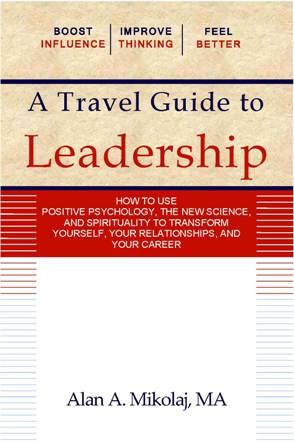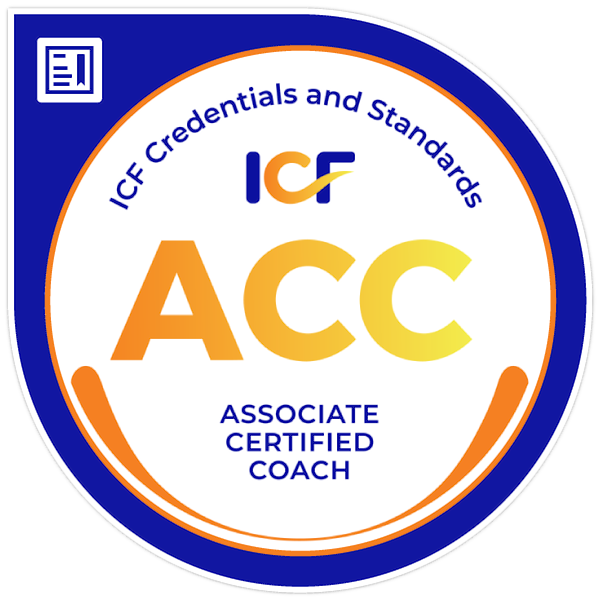|
Inspiration and lessons for your leadership journey! “Trust is the foundation of real teamwork. And so the first dysfunction is a failure on the part of team members to understand and open up to one another. And if that sounds touchy-feely, let me explain, because there is nothing soft about it. It is an absolutely critical part of building a team. In fact, it’s probably the most critical." Patrick Lencioni points out a fundamental element of team-building: If you and your team don’t have authentic trust, you don’t really have a team. John Maxwell teaches, “Trust is the foundation of leadership.” So if trust is the foundation for both team-building and leadership, what is trust like on your team? Most leaders think there is trust on their teams and that their direct reports trust them, but consider the following: A 2007 Florida State University study published in Leadership Quarterly revealed:
A 2013 BlessingWhite Employee Engagement Update discloses some eye-opening numbers on employee engagement in North America:
Chances are that the level of trust your direct reports have with you and the level of trust between members of your team may not be at the level you think it is. I challenge you to increase your awareness of trust on your team. Here are 15 signs of a low-trust team:
If you would like to learn more about trust and how to build it, I devote an entire chapter to trust in my latest book, A Travel Guide to Leadership. But whatever you do, you cannot have a high-performing team until you lay the foundation of authentic trust. If you like this week's blog, I encourage you to share it with your family, friends, and colleagues and join me on my journey to empower and inspire millions of people around the globe. Together we can spread words of Encouragement, Inspiration, Empowerment, and Loving Leadership! Together we can make a difference! Have an amazing journey today! Alan
0 Comments
Inspiration and lessons for your leadership journey! “But the fruit of the Spirit is love, joy, peace, patience, kindness, goodness, faithfulness, gentleness, self-control. Against such things there is no law... As a leader, you are not ultimately judged by what you do and accomplish, but by what your team does and accomplishes. So, the question is how do you influence, guide, and empower your team to success? St. Paul has some wisdom for you today. While you may become distracted by such things as policies, procedures, politics, audits, meetings, reports, and the like, it is essential to use your GPS for Leadership and to consistently return to your core mission and values. Whether you are Christian or not, the leader who uses the fruit of the Spirit mentioned in our opening quote have an edge over those who don’t. As I point out in my latest book, A Travel Guide to Leadership, some of the most influential leaders in human history were models and messengers of love and the other eight attributes of the fruit of the Spirit: Buddha, Confucius, Mahatma Gandhi, Jesus of Nazareth, Martin Luther King, Jr., Nelson Mandela, Mother Teresa of Calcutta, John Woolman (American Quaker and abolitionist), and Lao Tzu, to name only a few. The most powerful relationships we have in our lives are with those people who lead us and with those whom we lead – in which leadership is a central element of the relationship. Parent-child, friend-friend, girlfriend-boyfriend, spouse-spouse, teacher-student, coach-player, boss-employee, – it is relationships like these that have the most influence in our lives and where the lessons of love and life are cultivated. When we let go of our egos and competitiveness and stop provoking and irritating those we lead, work, and live with and replace that with love, joy, peace, patience, kindness, goodness, faithfulness, gentleness, and self-control, we cultivate a power of influence that leads to success – a success that extends far beyond reaching metrics and financial goals. Research backs this up. Leaders who demonstrate a more authentic, relational, servant-leader model and nurture that as team or organizational culture, not only positively affect the bottom line, they create what is called affective organizational commitment (an emotional attachment to, identification with, and involvement in the organization). If you’re wondering what that might look and sound like, think Google, SAS, and other “best companies to work for.” Write down this question and the nine attributes of the fruit of the Spirit and pin it up somewhere you can see it regularly: “How can I incorporate the fruit of the Spirit as a leader today?” Could you do that? Would you? When? If you like this week's blog, I encourage you to share it with your family, friends, and colleagues and join me on my journey to empower and inspire millions of people around the globe. Together we can spread words of Encouragement, Inspiration, Empowerment, and Loving Leadership! Together we can make a difference! Thank you and… Have an amazing journey today! Alan Inspiration and lessons for your leadership journey! “The purpose of our lives is to be happy.” When I found a single pearl of great value that can literally transform careers and lives for the better, I began by trying to tell as many people as possible. I tried weaving it into conversations, presentations, programs, this blog, and even wrote extensively about it in my latest book, A Travel Guide to Leadership. What was it? “Success does not necessarily predict or lead to happiness but happiness does predict or leads to success." Here are 5 proven ways you can start using today that can boost your happiness. 1. Start a Gratitude Journal Nurturing gratitude is one of the easiest and most powerful ways you can increase your happiness. Of all the techniques used to nurture gratitude and happiness, keeping a gratitude journal is by far my favorite because of its power and long-term effects. Here’s what you do:
I’ve found that couples or friends who do this together and share it, report more profound effects. 2. Be Kind and Loving The evidence has been mounting for many years now that doing good things for others makes you happier. From simple random acts of kindness to incorporating love in your definitions, metrics, and implementation of your business and professional goals and metrics, altruism not only helps others, it helps you to be happier and more successful, too! As Stephen Post, PhD wrote in his bestseller, Why Good Things Happen to Good People, “These qualities [a giving disposition, empathy, and social competence] reverberate across many domains of life, leading to success in work, friendship, and love – and resulting in happiness and health.” 3. Find and Live Your Purpose Martin Seligman, PhD and the father of positive psychology discovered three dimensions to happiness: 1) pleasure and gratification, 2) embodying strengths and virtues, and 3) meaning and purpose. He and others have found that without the application of one’s unique strengths and the development of one’s virtues towards an end bigger than one’s self, one’s potential tends to be whittled away by a mundane, inauthentic, empty pursuit of pleasure – and that’s not authentic happiness. An important part of defining that bigger end, purpose, or mission for yourself and your organizations that will boost authentic happiness is connecting it with Step 2. Robert Holden, PhD instructs those seeking success and happiness who are in the process of setting goals and developing a life mission, “If your definition of success has little or no measure of love in it, get another definition.” 4. Think Good Thoughts In his book, Leveraging the Universe, Mike Dooley wrote (italics in the original), “Your thoughts become things. They always have, and they always will. This is your divine inheritance. This is how you can change your life. It’s the answer. It’s the solution. It’s the salvation of all who discover it.” He’s right – and cognitive-behavioral and positive psychology research backs him up. It may have taken me over forty years to discover it for myself; but when I did, my whole life began to transform. You can be the person who looks outside and says, “It’s a beautiful day, and I’m excited,” or the person who says, “I’m regretful and guilty and wish I had done it differently yesterday,” or the person who says, “I’m disappointed it’s supposed to rain tomorrow.” You have a choice to see things in a positive or negative light. Seeing things more positively increases happiness. 5. Have Sex I’ll bet that got your attention! Yes sex feels great, but did you know it can significantly contribute to your happiness? Follow me for a minute. In a massive study, researchers found out how often people’s minds wandered, what they were doing at the time, whether mind-wandering was positive, negative, or neutral, and its impact on happiness levels. Interestingly, people’s minds wandered nearly half the time (46.9%). When their mind-wandering was neutral or negative, they were considerably unhappier. Although people’s minds were more likely to wander to pleasant topics, they were no happier because of it. So where does the sex come in? People were most focused (significantly less mind-wandering) and most happy when making love. The true bottom line from the study is that staying focused – living in the now – helps us to be happier. When we let our minds wander – no matter what we’re doing – we are more than likely going to diminish our happiness level. Another study related to happiness and sex (by a Dartmouth College economist and professor at University of Warwick in England) found that sex created more happiness than money. They estimated that increasing intercourse from once a month to once a week is equivalent to the amount of happiness generated by getting an additional $50,000 in income for the average American! So maybe sex could sometimes count towards exercise or that it will help us sleep better (two other scientifically proven points that makes us happier) or that it will be like getting a huge raise, but whatever the causes, there is now scientific proof that sex creates significant happiness (guys, you can thank me later for including this one). If you like this week's blog, I encourage you to share it with your family, friends, and colleagues and join me on my journey to empower and inspire millions of people around the globe. Together we can spread words of Encouragement, Inspiration, Empowerment, and Loving Leadership! Together we can make a difference! Thank you and… Have an amazing journey today! Alan Inspiration and lessons for your leadership journey! “It’s a great moment when someone has character to step up and do the right thing at the right time.” In today’s inspiring video (thank you, Sonya!), we will see an example of great character and integrity in a most unlikely venue – a championship softball game. I wrote extensively about integrity and ethical leadership in A Travel Guide to Leadership. Below is an excerpt from the chapter I called ‘The Trust Trek.’ As enigmatic as trust, character, and integrity may sometimes seem to be, they are the heart and foundation of the leadership journey and of high-functioning teams. John C. Maxwell wrote, “Trust is the foundation of leadership. To build trust, a leader must exemplify these qualities: competence, connection, and character.” As we will see in the following pages, the research supports Maxwell’s contention. Without trust and integrity – our character, if you will – our ability to influence and lead is severely undermined. I go on to explain the connections between trust, integrity, ethical leadership, and moral development – and how the lack of these virtues undermines any leader’s ability to lead. Our journey is full of daily decisions that make a difference – both great and small. It’s not only the pitch and the swing that makes a home run. Learn a valuable lesson about doing the right thing from Mallory Holtman and Liz Wallace in today’s video, Home Run. If you like this week's blog, I encourage you to share it with your family, friends, and colleagues and join me on my journey to empower and inspire millions of people around the globe. Together we can spread words of Encouragement, Inspiration, Empowerment, and Loving Leadership! Together we can make a difference! Thank you and… Have an amazing journey today! Alan |
Alan Mikolaj
Alan Mikolaj is a a professional, experienced, positive, and passionate speaker, leadership and organizational development consultant, change agent, author, and coach. He holds his Master of Arts degree in Clinical Psychology from Sam Houston State University. He is a certified graduate coach from Coaching Out of the Box and holds his ACC and membership with the International Coaching Federation (ICF). Free Discovery Conversation!
Impactful change starts with a conversation! Schedule your free, one-hour session by clicking here: Discovery Conversation with Alan
Or call or email: Contact Page In his third book, A Travel Guide to Leadership, Alan offers you simple, fundamental, and powerful lessons that have the power to transform you, your relationships, and your career.

Blog Archives
July 2024

Linked2Leadership
Ranked #1 Business Blog! |
|
CONTACT
TEL: 346-291-0216 EMAIL: [email protected] SCHEDULE TIME WITH ALAN Free Discovery Conversation with Alan |










